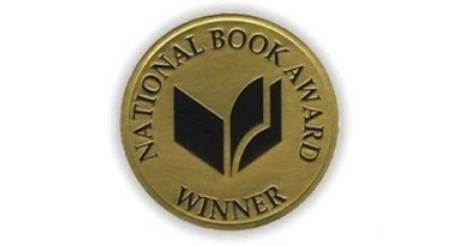
A New National Book Award and Another Strike for the New York Times
The National Book Foundation recently announced that it will now present a fifth National Book Award category, honoring a work of fiction or nonfiction that has been translated into English and published in the U.S. The inaugural award will join the other four categories—Fiction, Nonfiction, Poetry, and Young People’s Literature—and be presented at the 69th National Book Awards Ceremony in the fall.
The decision to create the new award was made unanimously. Executive Director Lisa Lucas states that, “We want American readers to deeply value an inclusive, big-picture point of view, and the National Book Award for Translated Literature is part of a commitment to that principle. The addition of this award lends crucial visibility to works that have the power to touch us as American readers in search of broadened perspective.”
It’s truly wonderful news and I’m thrilled to see more support and resources going toward the promotion of literature in translation.
And the New York Times covered the exciting news and totally fucked it up.
The literature in translation community is a supportive and generous one and all of the increased mainstream recognition of translated works and the category as a whole is because of the passion and hard work of writers, translators, small independent publishers, and devoted booksellers. Which is why completely ignoring the Best Translated Book Awards, an award that has been around since 2007, was started by an extension of a small independent press, Open Letter Books, and gives out $20,000 in prize money (which is double that of the new National Book Award) literally makes no sense to me. Is it shoddy journalism? Was this article just written too quickly? I don’t know. (There are some other small factual hang-ups with this article that I’m choosing to not discuss.)
But maybe the author just wanted to focus on THIS award, you say!
The author discusses other literary awards: “Other literary institutions have also made efforts to highlight works in translation. The PEN America Center has given out a translation prize to highlight international works since the 1960s. In 2015, the Booker Prize Foundation recast its international prize…”
Why does it matter?
It matters because that wonderful community built this award. It was started by a small press and so many others have contributed to its growth and success. By not including it and instead putting off this weird tone where you write things like, “…there’s still a lingering perception that translated literature doesn’t sell well in the United States” and “When other major literary awards have expanded their geographic reach, there’s occasionally been a backlash…” it just makes for a really shitty, weird, poorly researched article. I’m not expecting the Times to be a translation cheerleader, but can we have a slightly better news write-up?
Now, I interned at Open Letter, have reviewed for Three Percent, and have been a supporter of literature in translation in ways both big and small, so I understand that this matters to me in ways that it might not to others, but this is twice now (in my recent memory) that the Times book coverage has really missed the mark. Remember when they alienated and enraged the romance community?
Here’s a happy ending for you though. On Twitter, Lisa Lucas put out a call for a thread to “all the amazing publishers/magazines/awards who put out/champion translated literature!” and the responses are staggering. It’s a true testament to the breadth and depth of the literature in translation community and their support of one another.
Editor’s note: Disclosure: Book Riot’s Managing Editor Amanda Nelson and contributor Rachel Cordasco have served as Best Translated Book Award judges.








